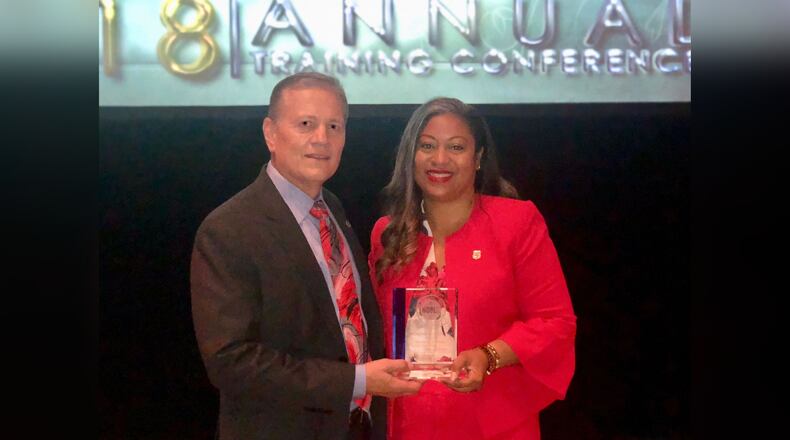Growing up, Natalie Ammons was always attracted to public service. She was just 18 years old when she joined the GBI in 1993.
Now, nearly 30 years later, she is the agency’s deputy director of public and governmental affairs and was just elected the first female president of Georgia’s chapter of the National Organization of Black Law Enforcement Executives.
As soon as she graduated from high school in San Francisco, she started looking for job opportunities in Georgia, where she was born, she told The Atlanta Journal-Constitution this week. Within a few months, she landed a job as a part-time clerical worker.
“I was definitely thrown into an environment that was different than anything that I had been in,” she said. “You have these people that are in law enforcement, and there are definitely a lot of men. It was different, but it toughened me up for sure.”
Ammons, a civilian, quickly climbed the GBI ranks, landing a full-time position within a year and eventually becoming assistant to the assistant director, as well as working on projects for then-Director Vernon Keenan in the mid-2000s.
She credits the mentors she found at the state agency, especially the women.
“You don’t think about seeing yourself in different positions until you see someone that maybe looks like you, so you think that that’s attainable,” she said.
Some years later, Ammons began helping in the public affairs division, “and that’s when I really fell in love with the public affairs aspect of the GBI,” she said.
That passion for community involvement is what attracted her to NOBLE, an organization of Black leaders, both civilian and sworn, dedicated to providing support and equitable solutions for law enforcement issues.
The Georgia chapter was incorporated in 1985. No woman has ever served as president.
“For years, Natalie has made all of us look good ... I am 100% sure that she will do an outstanding job in leading this chapter,” NOBLE Southeast Regional Vice President Robert Ford said just before Ammons was sworn in Feb. 2.
For Ammons, now 47, being the first woman president is a responsibility she doesn’t take lightly, but being the only woman or person of color in a gathering is not something that is new to her. She is also half Filipino.
“I have been in many rooms and sat at many tables where I was the only woman or I was the only Black person there, and so to me, I think it’s a huge responsibility to represent and to say things sometimes that might be uncomfortable,” she said. “If I walk into a room, and I see — say, for instance, like a stage — and you have nothing but the same type of person at the stage talking about something that’s supposed to be affecting everybody, I always have a problem. I’m just like, ‘Wait, there’s no woman there? There’s no person of color there?’ You know, like, ‘How are you speaking for everybody?’”
About the Author
The Latest
Featured


